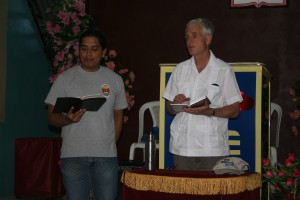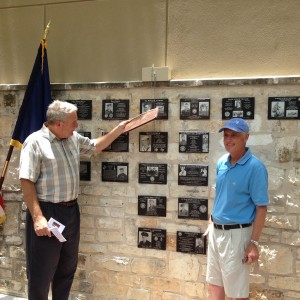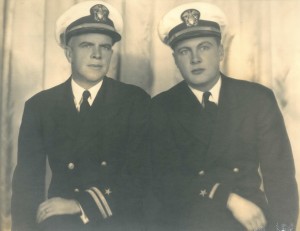 Here is the latest installment of the lessons on evangelism and discipleship. Please comment. I am printing in an order, but in the lesson plan we are developing, this lesson may be before the lesson for last week. Kathy and I thank you for all your help”
Here is the latest installment of the lessons on evangelism and discipleship. Please comment. I am printing in an order, but in the lesson plan we are developing, this lesson may be before the lesson for last week. Kathy and I thank you for all your help”
Copyright, 2015, Chris and Kathy Scruggs, All Rights Reserved
Many, perhaps even most Christians are shy about sharing their faith. This can be especially true of average Christians in older denominations. We are worried that we will say the wrong thing, annoy people, face rejection, and be unable to answer questions and the like. We don’t want to come off as a religious fanatic. These fears are completely understandable. However, we do need to think about how we will actually approach people and what we will say. In a way, we are already prepared; however, it might be a good idea if we could review what we’ve already learned. In the last chapter, we talked about telling people our personal story of faith. Telling our own story of faith is very important. People love to hear stories about how another person’s life was changed for the better.
Many Christians have difficulty sharing their own story. Even more people are not sure that they could tell another person what it means to be a Christian. This is nothing new. Christians have always struggled to tell others of the love of God we see in Jesus Christ. However, to be completely equipped as disciples to share God’s love with others we need to have two things in our minds
- A testimony of what God has done in our own lives.
- We have a simple understanding of how to explain the Gospel to another person. Here it is again
This chapter is designed to be sure you are prepared to share the gospel with others in a short way, so that they will understand what it means to be a Christians.
The New Testament is literally littered with examples of the Gospel. Peter, Paul, and the other disciples shared the Good News. Naturally, when they wrote letters or gave advice, their testimony concerning the Gospel was implicit is all they said. Sometimes, they were very clear about the content of their Gospel. In First Corinthians, Paul describes his gospel as follows:
Now, brothers and sisters, I want to remind you of the gospel I preached to you, which you received and on which you have taken your stand. By this gospel you are saved, if you hold firmly to the word I preached to you. Otherwise, you have believed in vain. For what I received I passed on to you as of first importance: that Christ died for our sins according to the Scriptures, that he was buried, that he was raised on the third day according to the Scriptures, and that he appeared to Cephas, and then to the Twelve. After that, he appeared to more than five hundred of the brothers and sisters at the same time, most of whom are still living, though some have fallen asleep. Then he appeared to James, then to all the apostles, and last of all he appeared to me also, as to one abnormally born (I Corinthians 15:1-8)
In this paragraph, written relatively early in the career of the Apostle, he tells the Corinthians the essence of the Gospel. Jesus Christ died for our sins. God vindicated him in by raising him from the dead. Finally, this was no private affair, but a matter of public record.
In letter after letter, Paul shares this gospel in many forms, some longer, some shorter. Near the end of his life, Paul shared another form of his gospel with Timothy:
So never be ashamed to tell others about our Lord. And don’t be ashamed of me, either, even though I’m in prison for him. With the strength God gives you, be ready to suffer with me for the sake of the Good News. For God saved us and called us to live a holy life. He did this, not because we deserved it, but because that was his plan from before the beginning of time—to show us his grace through Christ Jesus. And now he has made all of this plain to us by the appearing of Christ Jesus, our Savior. He broke the power of death and illuminated the way to life and immortality through the Good News (2 Timothy 1:8-10, NLT).
A little later on, Paul goes tells Timothy to remember his Gospel, the gospel of Jesus Christ who was of the house of David, and therefore qualified to be the Messiah, died, and was raised from the dead (2 Timothy 2:8). In these verses, Paul speaks of the power of God shown in the life, death, and resurrection of Jesus Christ.
These various testimonies, and a number of others in the New Testament, give us an idea about what a good explanation of the Gospel needs to say. First, any short gospel presentation needs to center on Jesus: on his life, his death, his resurrection, and his continuing work in the people of God who believe he is the true revelation of the mercy of God. Second, a good testimony includes some notion of the human need for God—the fact that we are mortal, doomed to physical death, and often sinful, doing things we know to be wrong and to deserve punishment. Third, to be good news, a presentation of the Gospel needs to assure hearers that a wise and loving God has provided us a way to fellowship with him, forgiveness of sins, and a kind of life we can only imagine.
If I were to write out a short gospel presentation, it would go something like this:
Everyone I know, including myself, often feels alienated from God. We have done things that we know are wrong. The people I know who have tried to overcome their sinful nature by hard work have failed. Some gave up entirely, and some became hypocrites trying to appear better than they were. What we need is inner transformation.  God loved us enough to send his Son, Jesus Christ, into the world to show us what a truly wholesome life would be like, to teach us God’s ways, and to die for our sins, showing us the extent of God’s amazing grace. God raised this Jesus from the dead, and then he promised to send his Holy Spirit to us when we believe, forgiving us and changing us from the inside out.
God loved us enough to send his Son, Jesus Christ, into the world to show us what a truly wholesome life would be like, to teach us God’s ways, and to die for our sins, showing us the extent of God’s amazing grace. God raised this Jesus from the dead, and then he promised to send his Holy Spirit to us when we believe, forgiving us and changing us from the inside out.
This testimony says who Jesus is, who we are, and what God has done for us in Christ. It centers expresses our need to accept Christ by faith.
For many years, Christians have used a graphic to describe the work of Christ. This little graphic is set out below. Some sophisticated Christians make fun of this graphic, but I think that it meets a need. Here is the graphic:
There are other ways of thinking about what we would say to another person who is far from God and needs to become closer. This lesson helps us overcome our fears by thinking again about what we might say to a person who needs to become closer to Christ. Here are the elements of the Gospel that this lesson accentuates:
Everyone is a sinner. In the Old Testament, the word for sin connotes an arrow that has missed the mark. We can all relate to this: however good or bad we have been, all of us have fallen short of being the person we were meant to be and treating others as God wanted them treated. In this sense, we are all sinners.
Sin has a Price. Just as we are all sinners, we all know sin has a price. Our relationship with God, others, and God’s creation is broken by our sin. As a result, we suffer a kind of death. Not only are we not the people we should be, we are also incapable of becoming the people we might have been. The penalty of sin is death—death in this world and death in the world to come. Spiritually, we are all dead because of our sin and far from being the people we might have been.
God is Holy and Perfect. God, on the other hand, is not a sinner nor does God experience sin. In my mind the most beautiful statement of God’s perfection comes in James where the author says, “Don’t be deceived, my dear brothers and sisters. Every good and perfect gift is from above, coming down from the Father of the heavenly lights, who does not change like shifting shadows. He chose to give us birth through the word of truth, that we might be a kind of first-fruits of all he created” (James 1:16-18). God is perfect, without sin, and our sin can’t be blamed on God.
There is a Chasm Between Us and God. Because we are sinners and God is perfect, there is a chasm between God and the human race—a chasm we cannot cross because the chasm represents a fundamental difference between us: we are sinners and God is perfect and therefore fundamentally separated from the darkness within us. The chasm between God and the human race is our alienation from the very source of our being, alienation described in Genesis as a hiding from God and others because of human shame.
God has Provided a Way of Reconciliation. The Good New is that in Christ God has provided a way to bring sinful people into a relationship with a sinless God. By becoming one of us in the person of Jesus Christ, God adopted our human limitations, yet lived a sinless life. By taking on our sins on the cross, God paid the eternal price for our sins and a way for us to recover our broken relationship with him. This is the Good News.
Some years ago, I was in my office on a Friday. I got a call from the front desk because a disturbed individual was there asking for help. I went up and brought the person to my office. Without going into detail, this person was in a sinful lifestyle, taking mind-altering drugs, and in a relationship of abuse. She was not highly intelligent and she had been drinking. I knew that whatever I said to her had to be simple. The only thing I knew to do was share the gospel in a short form. I took out a piece of paper, drew the little diagram above, and shared the basic elements of the gospel. My guest had been raised in a poor, minority church. She knew the basics of the story. As I shared the Gospel with her, her eyes lit up. She prayed for forgiveness. We spoke of other, more urgent things, and our congregation helped her with a physical need. In the end, this short sharing of the Gospel was exactly what this person needed.
The Power of Prayer
Many years ago, in my first church, I created a little card that described the process of leading a person to Christ. It all begins with prayer. It would be nice if it were easy to determine who is a person of peace and who is not. It would be great if it were possible to tell who will receive the Gospel with joy and who will not. Fortunately, God does know. Therefore, the best place to start with discipling people is exactly where we should start every day anyway—by praying.
One important thing about prayer is that it leads us to unlikely people. Think of the Apostle Paul. On the surface, he did not seem to be a person of peace. Here is how he describes his own conversion:
For you have heard of my previous way of life in Judaism, how intensely I persecuted the church of God and tried to destroy it. I was advancing in Judaism beyond many of my own age among my people and was extremely zealous for the traditions of my fathers. But when God, who set me apart from my mother’s womb and called me by his grace, was pleased to reveal his Son in me so that I might preach him among the Gentiles, my immediate response was not to consult any human being. I did not go up to Jerusalem to see those who were apostles before I was, but I went into Arabia. Later I returned to Damascus (Galatians 1:13-17).
Paul was not interested in being a Christian. He was interested in being a Pharisee. He was not overtly open to the gospel. He was a persecutor. However, God warmed his heart. In Acts, we are told that the early church did not easily accept Paul. They feared him with good reason. Yet, Paul was a person of peace—a person God had prepared to respond to the Gospel. Paul’s story reminds us to keep an open heart and open mind and to look beneath the surface. His story also urges us to be patient.
Be Open To God and To Circumstances
One of the most important things we can be is open to God and to circumstances. If every interruption in our daily routine or plan for the week is seen as negative, we will miss a lot of chances to share Christ with others. Many of our best opportunities to share the Gospel with others will come when we planned to do something else! Therefore, we have to remain open to the work of God in unforeseen and sometimes bothersome circumstances.
Overcome Fears
The single most difficult thing for most people to overcome is fear. When I was in seminary, some well-intentioned professor warned us never to pray for people without asking. He was afraid that we would offend people. After more than twenty years of ministry, that event has never come up. The fact is, people are not as easily offended as we think. People in trouble almost always appreciate a prayer, even non-Christians.
This does not mean that we do not need to be sensitive to others. We do. However, most of the time our normal human sensitivity to others will be sufficient to protect us from making terrible mistakes. What is needed in offering prayer and in offering our testimony and the Gospel is good sense and discernment. If we are other-centered, trying to understand and help another person, our ordinary common sense is likely to lead us in the correct path.
Speak Plainly
Many of us think we cannot share with others because we are not eloquent. This is simply not a problem. Most of those we meet will accept, understand, and enjoy our testimony precisely because it is not eloquent, practiced, professional and the like. Plain words, plainly spoken are better than practiced speeches. This is why it is important to put your testimony and gospel presentation in your own words.
On the other end of the spectrum are people who are eloquent and even a bit learned who say too much and speak in an overly-theological language. The moment of conversion is not the time to use words like “Predestined” or “Total Depravity.” These are theological words with complex meanings. It is enough to know God is at work when we come to Him and we need God because we all do things we know we ought not be done. One very important rule is to never use a word you cannot explain to someone who knows little or nothing about the Christian faith. Finally, of course, it goes without saying that one should never use a word the speaker does not understand.
Don’t Worry About Results
Much of the time, we want people to respond immediately. Some people do and will. However, others will not. Some people like to ponder what they have heard and only react after a time of thinking. We are part of a Presbyterian weekend retreat held four times a year. At this point, we’ve seen hundreds of people go through an extremely intense weekend of spiritual growth. Some people react immediately and emotionally. Some people do not. What we’ve noticed over the years is that some of those who react immediately and emotionally return to their normal lives unchanged in just a few days. Some of those who barely reacted at all during the weekend after a few weeks are changed forever. The Holy Spirit works according to God’s timetable not ours.
Keep Praying
As we work with people, it is important to continue to remind ourselves that God is in charge. We cannot bring people close to God; only God by the power of the Holy Spirit can bring people into a life-changing relationship with the Living God. We can, however, keep praying for people. Both of us have people we have been praying for a long, long time. It is discouraging to pray for a person for years without a response, but sometimes it happens. On result of believing in the Sovereignty of God is that we believe that God is in charge of who and when comes near to God. We are servants. Our job is to pray, share, and love others. We do not know what God may be doing in the life of another human being. Therefore, we must continue to pray.
A Short Method of Helping a Person Receive Christ
There is not single formula for becoming a Christian. Nevertheless, people are called upon to assist others in making a decision to become a disciple of Jesus. Here are six questions that you might ask yourself or another person if the circumstances were appropriate:
- Do you believe in a personal God, Father, Son, and Holy Spirit, who created and sustains all things?
- Do you believe that human beings in general, and yourself in particular, are spiritually and morally flawed?
- Do you believe that God has acted to undo the effects of sin (spiritual and moral flaws) in your life by the life, death, and resurrection of Jesus?
- Do you accept Jesus Christ as your savior (the one you will lean upon as having delivered you from sin) and Lord (the one you will try to follow and emulate in your daily life)?
- Do you commit yourself to a life of discipleship as part of a local body of believers (a church) who are trying to live on the basis of God’s love shown in Jesus Christ?
- Do you hope for eternal life in fellowship with God and believe in God’s ultimate victory over sin and death?
There are other ways to lead a person to Christ, but this is one way to help people feel certain that they are a Christian.
What Do I Do Next?
The next steps you take with a new Christian are very important. If a person has made a commitment to Christ, he or she is initially only a Baby Christian. New Christians need a community of believers in which they can mature and grow. In other words, a new believer needs a church and to become a member of a small Bible study or discipleship group. Therefore, there are two things that you must do immediately after a person decides to become a Christian:
- Bring them to church and see that they get baptized or that they confirm their baptism if they were baptized as a child.
- Help them become a part of the church, the body of Christ, a local fellowship of Christians.
- Help them become involved in a discipleship group, preferably one you lead. [1]
Remember the great Commission? Jesus said:
Therefore go and make disciples of all nations, baptizing them in the name of the Father and of the Son and of the Holy Spirit, and teaching them to obey everything I have commanded you. And surely I am with you always, to the very end of the age” (Matthew 28:18-20).
This tells us exactly what we must do: Be sure new believers are baptized and taught the essential basics of the Christian life. In Presbyterian Churches, only the teaching elders (or ministers of word and sacrament as they are sometimes called) can administer baptism. Therefore, make an appointment to see your pastor and be sure that the person is able to be baptized or make a public statement of their new faith as soon as possible. This is important for them and for the church.
Second, it is of vital importance that they become involved in a small group (a discipleship group), preferably one you lead! If that is not possible, you need to get them into a Sunday School Class, Bible Study, or other small group. But, to reaffirm: it is best if you become their coach as they grow in Christ.
Imagine a parent who gave birth to a child, but never fed, trained, parented, or otherwise helped the child become a mature adult. We would not think that person was a very good parent. When you lead another person to faith in Christ or are instrumental in their decision to become a follower of Jesus, you become their spiritual parent. It is important, therefore, that you continue to meet with them and study the Bible and pray with them as they mature in Christ.
The Order Does Not Matter
Right here we come to a place where differing groups have different ideas about leading people to Christ. The last thing I mentioned is to bring people to a small group in which they can grow in Christ. Much of the time, this may be the first thing to do. People should be invited into our Bible Studies and fellowship groups just as soon as we think they will respond. It is a big mistake. Invite people to your home, to a Sunday School class, to a Bible study, to worship. Many, if not most people need to enter the church and begin to feel comfortable in church even before they are Christians.
[1] This is the primary reason that we have created a training guide for Presbyterians. In our way of doing church, a Teaching Elder or Minister of the Word or Sacrament or other elder authorized to baptize new believers should baptize people in a local congregation.
 Dear Friends: This week, we are taking time for a brief review of the first part of our study before beginning to look at the second part. The first part of the study was previewed this spring with two small groups. The second part is new. It is about what kind of person we must be to be a disciple, the importance of a small group that is a part of the family of God and reflects the character of the Kingdom of God, and how we can lead others in a life changing discipling relationship. Blessings to all!
Dear Friends: This week, we are taking time for a brief review of the first part of our study before beginning to look at the second part. The first part of the study was previewed this spring with two small groups. The second part is new. It is about what kind of person we must be to be a disciple, the importance of a small group that is a part of the family of God and reflects the character of the Kingdom of God, and how we can lead others in a life changing discipling relationship. Blessings to all! This summer, I had an opportunity to walk the Camino De Santiago in Spain. Every morning, my colleague and I got up with a goal in mind. We even had a map and some instructions. Yet, every day we needed to review where we were and how far we had come. At least a few times we had managed to stray from the path and needed to remind ourselves of the way to our destination. This is just such a pause.
This summer, I had an opportunity to walk the Camino De Santiago in Spain. Every morning, my colleague and I got up with a goal in mind. We even had a map and some instructions. Yet, every day we needed to review where we were and how far we had come. At least a few times we had managed to stray from the path and needed to remind ourselves of the way to our destination. This is just such a pause. There are for fields shown, and we have now covered two of them in some detail: Who is Your Mission Field? and What Do You Share? The second part of this study concentrates on the last two questions, “How do you Disciple” and bringing new disciples into an existing church (Group) and developing them as disciples in community. Finally, we need to both be leaders (disciple who can train disciples) and be aware of developing the leadership ability of those around us (How).
There are for fields shown, and we have now covered two of them in some detail: Who is Your Mission Field? and What Do You Share? The second part of this study concentrates on the last two questions, “How do you Disciple” and bringing new disciples into an existing church (Group) and developing them as disciples in community. Finally, we need to both be leaders (disciple who can train disciples) and be aware of developing the leadership ability of those around us (How). Others call it our “social network.” In any case, all of us live within a network of human relationships in which we meet people who are open to God. Here is one way to graphically represent this aspect of discipleship:
Others call it our “social network.” In any case, all of us live within a network of human relationships in which we meet people who are open to God. Here is one way to graphically represent this aspect of discipleship: People of Peace are those people we think are open to the Gospel for one reason or another. One thing we need to remember: We may not know if a person is a Person of Peace. The Apostle Paul was a Person of Peace, but he was also a persecutor of the church. When I was reached by a lady at a law firm in Houston, I was not looking for God, and did not display many of the obvious characteristics of a Person of Peace. Therefore, we share wisely and loving with those we can leaving it up to God who responds.
People of Peace are those people we think are open to the Gospel for one reason or another. One thing we need to remember: We may not know if a person is a Person of Peace. The Apostle Paul was a Person of Peace, but he was also a persecutor of the church. When I was reached by a lady at a law firm in Houston, I was not looking for God, and did not display many of the obvious characteristics of a Person of Peace. Therefore, we share wisely and loving with those we can leaving it up to God who responds.










